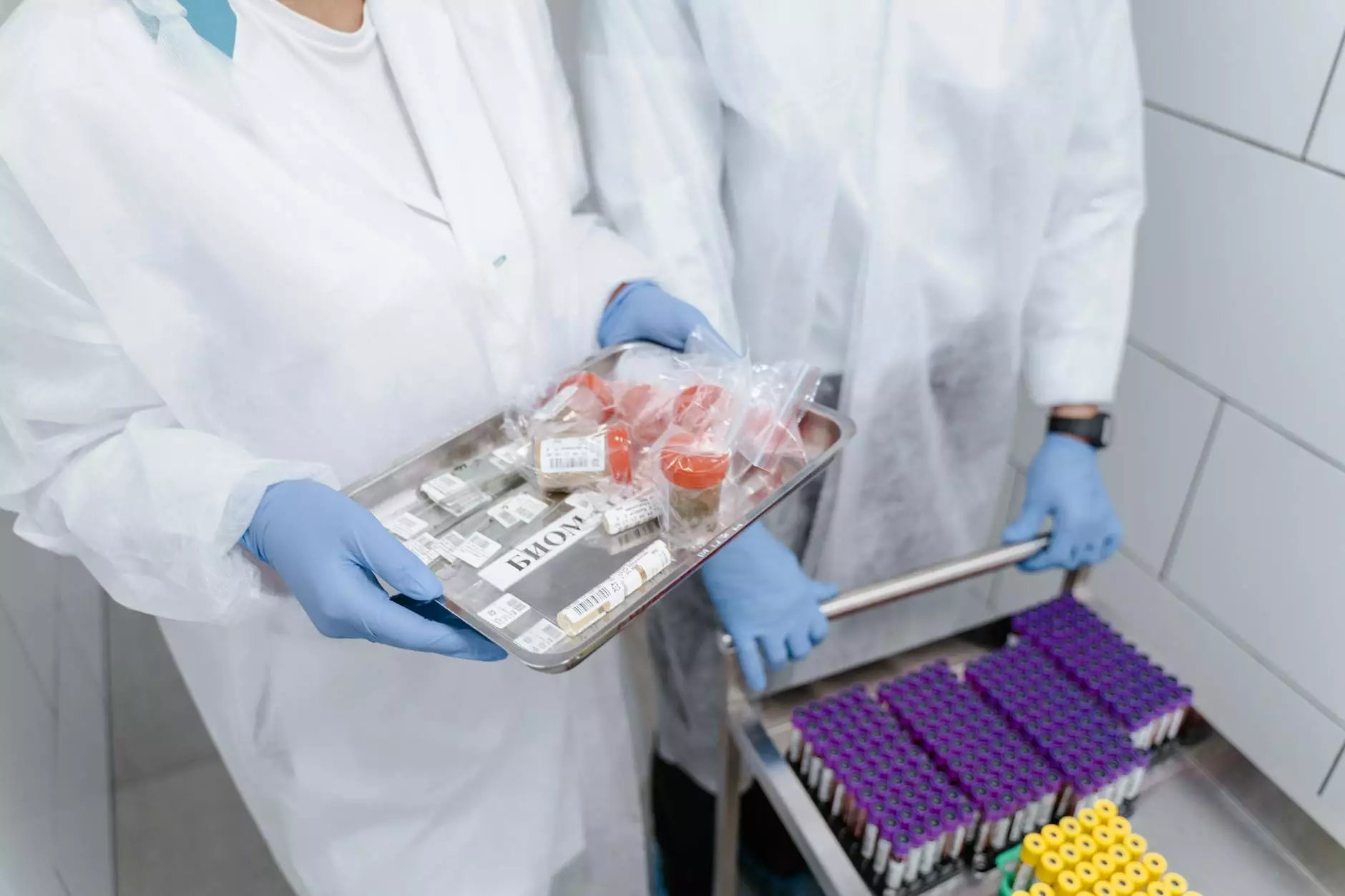The Importance of Pharmaceutical Supplies in Healthcare

The world of healthcare is vast and complex, where the significance of pharmaceutical supplies cannot be overstated. These supplies play an essential role in ensuring the effective operation of medical institutions, from hospitals to clinics and pharmacies. By examining the different facets of pharmaceutical supplies, we can appreciate their impact on patient care, treatment efficacy, and overall health outcomes.
Understanding Pharmaceutical Supplies
At its core, pharmaceutical supplies include a broad range of products designed for therapeutic purposes. This category encompasses not only medications but also items necessary for their administration and storage. Some key components include:
- Prescription Medications: Drugs prescribed by healthcare professionals for specific illnesses or conditions.
- Over-the-Counter Medications: Non-prescription drugs available directly to consumers for minor ailments.
- Vaccines: Preparations used to provide immunity against diseases.
- Injectables: Medicines delivered via injections, crucial for fast-acting treatments.
- Medical Devices: Equipment used in the administration of drugs or the monitoring of health conditions, such as syringes, infusion pumps, and inhalers.
The Role of Pharmaceutical Supplies in Patient Care
Pharmaceutical supplies are not only vital for healthcare providers; they directly affect patient outcomes. Here’s how they contribute to effective patient care:
1. Accessibility to Medications
The availability of pharmaceutical supplies ensures that patients can access the medications they need without interruption. This availability is crucial for managing chronic conditions, where consistent medication intake is necessary for maintaining health.
2. Enhanced Treatment Efficacy
High-quality pharmaceutical supplies lead to improved treatment outcomes. Medications produced with rigorous quality control and adherence to regulatory standards work more effectively, providing patients with the relief they seek.
3. Emergency Preparedness
During emergencies, access to immediate and effective pharmaceutical supplies can significantly impact survival and recovery. Hospitals equipped with an adequate stock of essential drugs and medical supplies can respond quickly to crises, providing timely treatment.
The Pharmaceutical Supply Chain
Understanding the supply chain of pharmaceutical products can shed light on the complexity and importance of the sector. The pharmaceutical supply chain involves several critical steps:
1. Manufacturing
The first step is the manufacturing of pharmaceutical supplies. This process must adhere to strict regulations, ensuring that every product is safe and effective for patient use. Manufacturers often invest in advanced technology and skilled personnel to maintain high standards.
2. Distribution
Once manufactured, pharmaceutical supplies enter the distribution phase. Distributors ensure that products reach healthcare facilities promptly and safely. This step is crucial, as delays or mishandling can lead to significant issues in patient care.
3. Pharmacy Management
Pharmacies play a vital role in ensuring that patients receive the correct medication. Efficient pharmacy management involves tracking inventory, maintaining records, and ensuring compliance with regulations. The integration of technology has enhanced this aspect, enabling better management of pharmaceutical supplies.
Challenges in the Pharmaceutical Supply Industry
While the pharmaceutical supply industry is critical to healthcare, it faces several challenges that can affect its efficiency:
1. Regulatory Compliance
Pharmaceutical companies must navigate complex regulations that vary by region. Compliance is essential to avoid legal issues and maintain patient safety, but it can also slow down the introduction of new products into the market.
2. Global Supply Chain Disruptions
Recent global events have highlighted the vulnerabilities in supply chains. Disruptions can occur due to factors such as natural disasters, pandemics, or geopolitical tensions, impacting the availability of vital pharmaceutical supplies.
3. Counterfeit Products
The prevalence of counterfeit pharmaceuticals poses a significant threat to patient safety. Ensuring the authenticity of pharmaceutical supplies is crucial, requiring robust verification processes and consumer education.
The Future of Pharmaceutical Supplies
As we move forward, the landscape of pharmaceutical supplies will continue to evolve. Several trends are shaping the future of this industry:
1. Technological Advancements
Innovations such as blockchain technology, artificial intelligence, and telehealth are revolutionizing the way pharmaceutical supplies are managed. These technologies enhance transparency, efficiency, and patient engagement.
2. Personalized Medicine
Advancements in genomics and biotechnology are paving the way for personalized medicine, allowing tailored treatments based on individual patient profiles. This shift will require a transformation in how pharmaceutical supplies are produced and distributed.
3. Sustainability Initiatives
With the rising awareness of environmental issues, the pharmaceutical industry is focusing more on sustainable practices. This includes minimizing waste, using eco-friendly materials, and reducing the carbon footprint of manufacturing processes.
Choosing the Right Pharmaceutical Supplies Partner
Choosing the right supplier for pharmaceutical supplies is fundamental to the success of any healthcare practice. Here are some key considerations when selecting a partner:
1. Quality Assurance
Ensure that your supplier adheres to stringent quality assurance practices. Verify that they comply with regulatory standards and have certifications that validate their quality commitments.
2. Reliability and Delivery Performance
Evaluate the supplier’s track record in terms of reliability and on-time delivery. A dependable partner is crucial for maintaining inventory levels and ensuring patient care is not compromised.
3. Customer Support
Exceptional customer support can set a supplier apart. Look for partners who provide ongoing support, training, and easy communication to address any concerns that may arise.
Conclusion
In conclusion, pharmaceutical supplies are the backbone of modern healthcare. Their impact extends far beyond mere medications, influencing every aspect of patient care and treatment efficacy. By understanding the vital role these supplies play, we can better appreciate the challenges and opportunities within the industry. Embracing advancements in technology, ensuring stringent quality control, and fostering reliable partnerships with suppliers like mersaco.com can significantly improve healthcare outcomes and the overall patient experience.
As we continue to advance in the field of healthcare, staying informed about the latest trends and developments in pharmaceutical supplies will undoubtedly pave the way for better patient outcomes and a healthier future for all.









